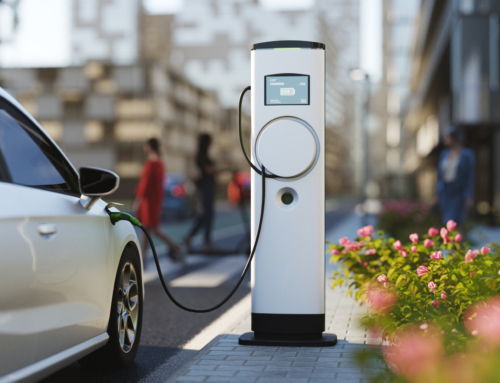The ocean is a vast and marvelous ecosystem that provides mankind with a massive list of benefits and resources. Sadly, mankind has yet to even come close to returning the favor. Ocean pollution effects are getting wildly out of hand, and if we don’t unite in action against marine pollution, our whole planet will continue to suffer more and more until we are no longer self-sustaining.
In this article, we’ve laid it all out for you:
- The importance of keeping our oceans clean and healthy
- Astounding ocean pollution facts
- The many hazardous ocean pollution effects
- The severity of plastic pollution in the ocean
- What you can do to improve the situation
Continue reading for an in-depth understanding of ocean pollution effects and what you can do to join the effort of making a change, spreading awareness, and contributing to cleaner waters and healthier marine life.
A Whole Ocean of Importance
If everyone in the world possessed a clear understanding of how important our oceans are, then keeping them clean would surely be a global priority. A world without oceans would be a dead, dried-up, uninhabitable wasteland. These waters are the lifeblood of our world, and yet we continue to fill them with trash, toxins, and other pollutants.
Use the following information to get a firm grasp on the magnitude of importance that oceans represent to the human race and every other living organism on planet earth.
The Ocean Absorbs Carbon Dioxide
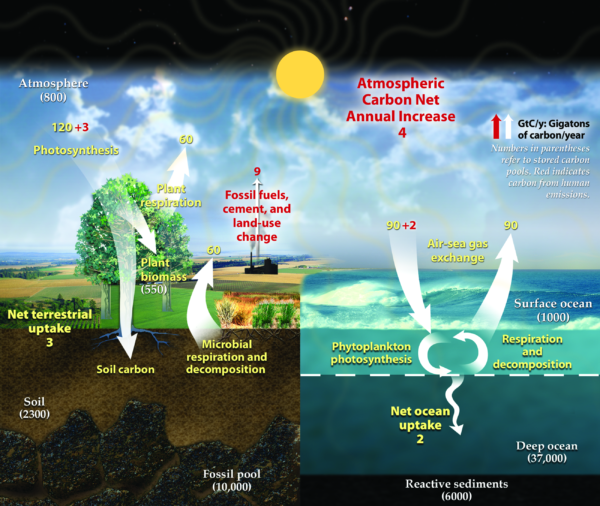
A visual diagram of the oceans involvement in carbon dioxide absorption
The day-to-day operations of our civilization emit a level of carbon dioxide into the air that is dangerous and harmful to life on earth. Fortunately, the ocean absorbs a great portion of it and filters it back into the earth.
This recycling process is quite slow, however, taking hundreds to thousands of years for the ocean to filter it through its depths and back into our planet. As our carbon dioxide production continues to elevate, the ocean becomes more and more acidic, which decreases its ability to absorb and recycle otherwise detrimental levels of CO2.
Scientists can’t say exactly what our world will become with advancing levels of carbon dioxide, but they point to the planet Venus as a probable comparison.
The Water Cycle Is Dependent on the Ocean
Did you know that our planet is primarily comprised of water? Oceans cover more than 70% of the Earth and provide water to life on land in more ways than one. In order to sustain the number of living organisms on our planet, the water cycle is dependent on the sheer volume of water that the oceans provide.
You remember learning about the water cycle, don’t you? Ocean water evaporates into cloud form, those clouds roll over the land, and everyone and everything thrives on the fresh rainfall as a result. Without the oceans that enable the water cycle to work its magic, our world would shrivel up like a raisin. Nothing would grow; nothing would live.
The Ocean Provides an Enormous Amount of Food
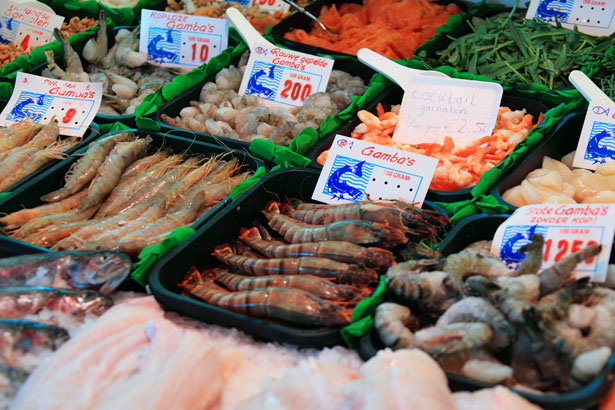
The ocean is the largest ecosystem on our planet, and as such, harbors a seemingly infinite supply of food and other essential resources. Experts estimate about 200 billion pounds of seafood is caught from the ocean every single year, which is an enormous amount of food that is used to feed hundreds of thousands of people and animals on land.
According to a report by the Missouri Botanical Gardens, nearly 80% of the world fish catch comes from ocean waters. Not only is this an invaluable resource to human beings, since 16% of our protein intake comes from seafood, but it’s also incredibly important for the animals on land. Experts suggest that at least 1/4th of our ocean fish is used to feed land animals.
The Ocean Controls the Weather
The ocean is capable of influencing the weather in many ways all around the world. The natural currents of the ocean circulate heat to warm various parts of the world, which you could call an all-natural thermostat. Ocean currents also play a great part in weather patterns that bring rain, snow, and sunshine to different parts of the Earth throughout the year.
As you can see, combating ocean pollution effects is a worthy cause. Oceans provide many resources and benefits that we simply can’t survive without, and these examples are only just the tip of the iceberg. Let us not forget that oceans enable distant travel, provide millions of jobs to people around the globe, and can offer a place of beauty, entertainment, and tranquility to all who visit.
Types of Ocean Pollution and Their Effects
The ocean is suffering from a myriad of different toxins and waste. Below, we’ve detailed the major forms of ocean pollution and their effects.
Plastic Pollution
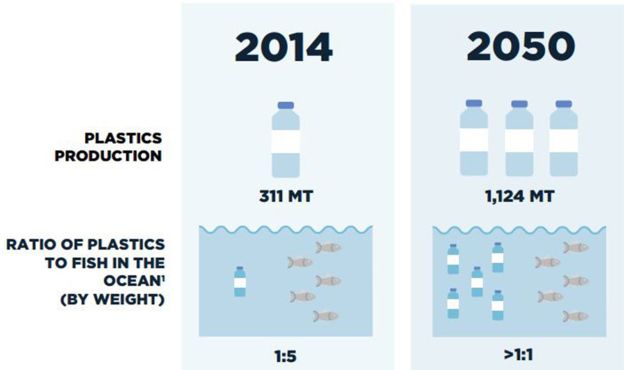
Plastic pollution in the ocean is perhaps one of the most widespread environmental crises that our world is currently facing. Because plastic is such a pliable and affordable material, modern-day manufacturers seem to be using it whenever possible. Plastic is all around us, from the straws you drink from to the bags you carry your groceries in, and most of that plastic ends up in our oceans — eight million metric tons every single year, according to this study.
The truth is that most of the plastic that ends up in the ocean comes directly from us on land. By way of littering, run-offs, and other careless habits, we have filled the lifeblood of our planet with enough plastic trash to cover every coastline in it.
The problem with plastic pollution in the ocean is that it can take hundreds of years to complete the process of biodegradation — or in other words, break down and wither away. As we continue to use and consume, the trash pile only continues to grow with no hope of shrinking.
But plastic pollution in the ocean is more than just a dirty eyesore: it’s also a great danger to marine life. Various studies and reports have been done on the matter of plastic pollution effects on marine wildlife, and the conclusions are bleak. This eye-opening report, for example, explains how plastic pollution in the ocean has harmed hundreds of different species, including sea turtles, gray whales, harbor seals, and waterfowl.
Carbon Emissions
Carbon emissions is a broad term used to encompass the pollution that we create when we burn fossil fuels. Earlier in this article, we mentioned the dangers of increased levels of carbon dioxide in our atmosphere — remember Venus?
As we continue to burn fossil fuels and emit carbon dioxide into the air, the ocean becomes more and more acidic, which limits its ability to absorb, filter, and recycle those harmful levels of CO2. At this rate, we could cause ocean waters to become 150% more acidic by the end of this century, according to The National Oceanic and Atmospheric Administration — which is very bad for several reasons. Not only will our air contain harmful levels of CO2, which can result in negative atmospheric changes, but the marine life below the surface of the ocean will also suffer negative changes in their ecosystem from rising acidity levels.
Oil Pollution
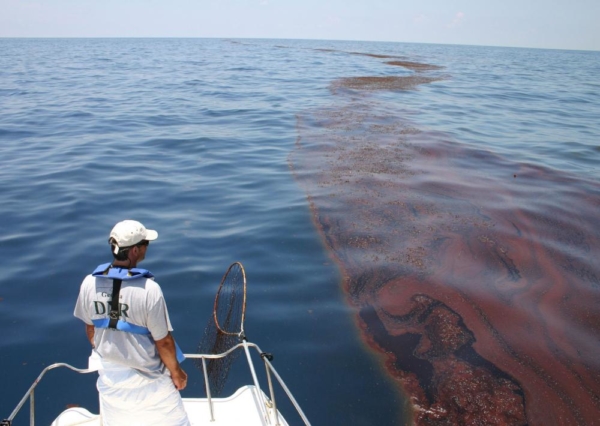
An oil spill 2 years after the spill
Oil pollution is another major contributor to the declining state of our oceans. Once oil spills or leaks into ocean waters, it’s incredibly difficult to remove. Oil pollution can come from a myriad of different sources, from industrial discharges, offshore drilling, continuous undetected leaks, and devastating oil spills.
What You Can Do
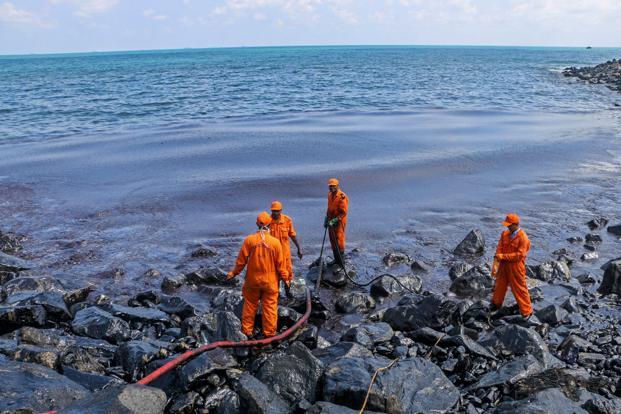
Saving our oceans begins with the daily habits and lifestyle of the individual. You can start helping our oceans and spreading ocean pollution awareness by making charitable contributions to helping marine cleanup and preservation, educating friends and family, and making these small changes in your daily life:
- Avoid using plastic whenever possible
- Recycle, recycle, recycle
- Don’t discard cooking oils or grease down the drain (seal in a container, let harden, and throw away)
- Ask for paper bags at the grocery store
- Invest in a few reusable straws and take them out with you to avoid using more plastic
- Buy a reusable water thermos instead of using disposable plastic water bottles
- Carpool or get around by utilizing public transportation
- Don’t litter! Clean up trash when you see it — even if it’s not yours
- Participate in keeping local waterways free of garbage
- Lend a helping hand in International Coastal Cleanup Day
Armed with these ocean pollution facts, you’re now well-equipped to spread the word and make a difference not only in your community but on this beautiful blue planet we call home. Let’s keep it blue for many more years to come!

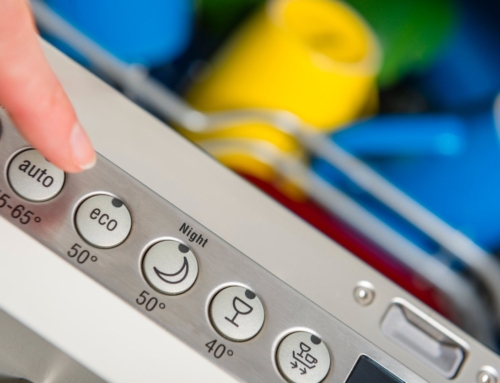
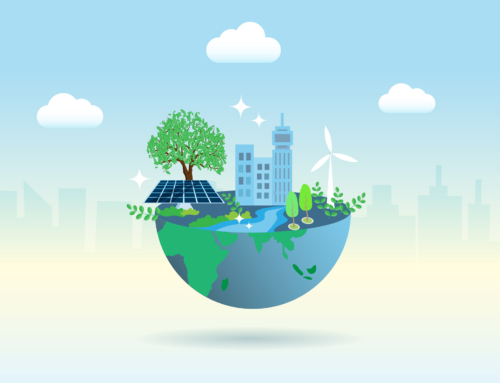

![Top 11 Sustainable Building Practices for Eco-Homes [Plus 5 Sustainable Materials]](https://springpowerandgas.us/wp-content/uploads/2023/02/iStock-181062267-500x383.jpg)
